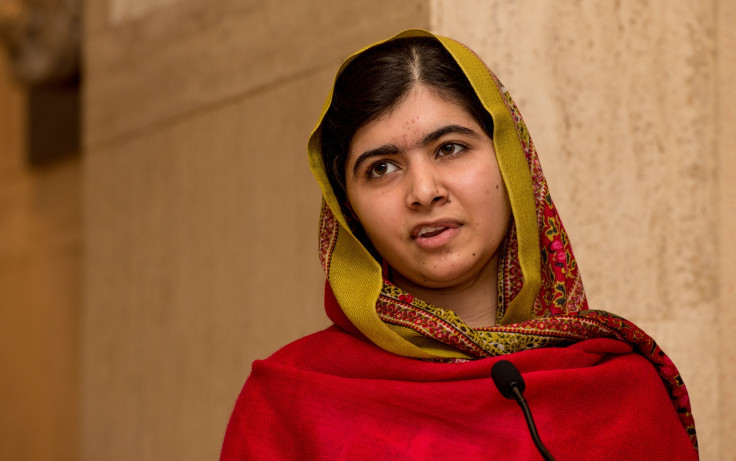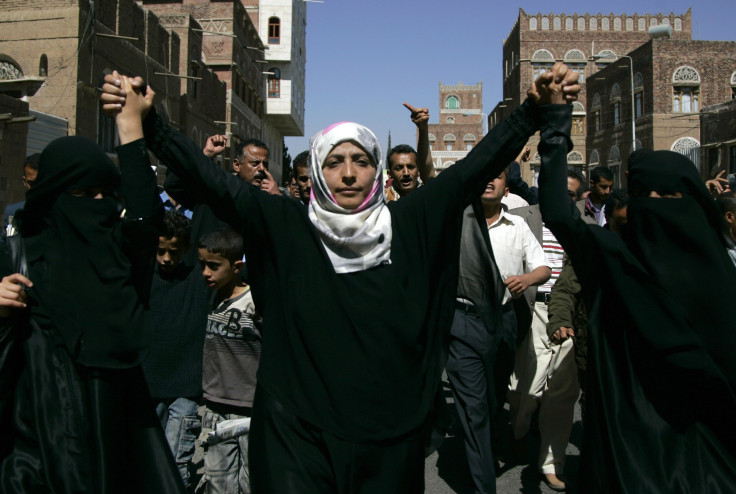Muslim Women's Day 2017: 10 Powerful Quotes Celebrating Girl Power In Islam

Monday marked the first-ever Muslim Women's Day, an effort by MuslimGirl.com, the Women's March and other organizations to celebrate the women of Islam.
"Contrary to what people might think, Muslim women talk back," a statement on Muslim Women's Day web page said. "And on Muslim Women’s Day, the world will be listening."
Indeed, Muslim women do talk, and they talk to inspire. Here are 10 quotes from Muslim women around the world.
Read: Meet A Muslim Day: Nationwide Event Aims To Combat Ignorance Over Islam
1. "If one man can destroy everything, why can't one girl change it?"
— Malala Yousafzai, an advocate for girl’s education in Pakistan who was shot in the head by the Taliban in 2012 — but she survived. She’s also the youngest person ever to win a Nobel Prize.
Read: Discrimination in America: Muslim Students 4 Times As Likely To Be Bullied
2. “My election win offers a counter-narrative to the bigotry in the world. This is a land of immigrants, and most come here for opportunity, a second chance. It’s our time to fight for the America we know we can have.”
— Ilhan Omar, America’s first Somali-American Female legislator, who was elected to her position as Minnesota state representative last year
3. “Not seeing women that look like you in media in general and especially in beauty competitions sends the message that you’re not beautiful or you have to change the way you look to be considered beautiful. And that’s not true.”
— Halima Aden, beauty pageant contestant and, in 2016, one of the first Muslim Somali-American women to compete for the title of Miss Minnesota USA.
4. “I use fashion as a tool to eliminate prejudices against Muslims, I want to challenge the image of the oppressed Muslim woman in the West who voluntarily isolates herself from society.”
— Iman Aldebe, a fashion designer
5. “Women are intersectional human beings who live multi-issued lives. When we are protected, when we are respected, when we are able to thrive and given the same opportunities as our male counterparts, when we are given space to lead and rise—our nation will rise.”
— Linda Sarsour, co-chair of the Women’s March group, which organized the Women’s March on Washington in January and a nationwide women’s strike in March
6. “I think it can be transformative, to have women of color, especially Muslim women, especially veiled Muslim women, in the tech world. We need to uplift our visibility. Visibility is crucial.”
— Amani al-Khatahtbeh, who runs Muslimgirl.net, and has been described as a “media titan”
7. "I hope ultimately that younger Muslim girls will see that they can still do what they want no matter what and I hope that people who aren’t Muslim can see that I’m just like them. The only difference is that I wear a scarf."
— Nura Afia, a beauty blogger who was chosen as CoverGirl’s first hijab-wearing ambassador
8. “It’s not my responsibility to be beautiful. I’m not alive for that purpose. My existence is not about how desirable you find me.”
— Warsan Shire, a poet from London. Her poetry was featured on Beyonce’s 2016 album “Lemonade.”
9. “I have a calling and purpose in this world. We must stand and speak up against injustices, my family gets that, it’s not easy but this is who I am. If loving my land means I will die, so be it.”
— Fadumo Dayib, the first woman to run for president in Somalia
10. “I am a citizen of the world. The Earth is my country, and humanity is my nation. This is my motto: What everyone has longed for and will be achieved when all of the people shall also celebrate this prize that every Yemeni, and every Arab, and every human being and every woman has also won beside me.”
— Tawakkul Karman, a journalist and politician from Yemen. In 2011, she was a co-recipient for the Nobel Peace Prize

© Copyright IBTimes 2025. All rights reserved.






















